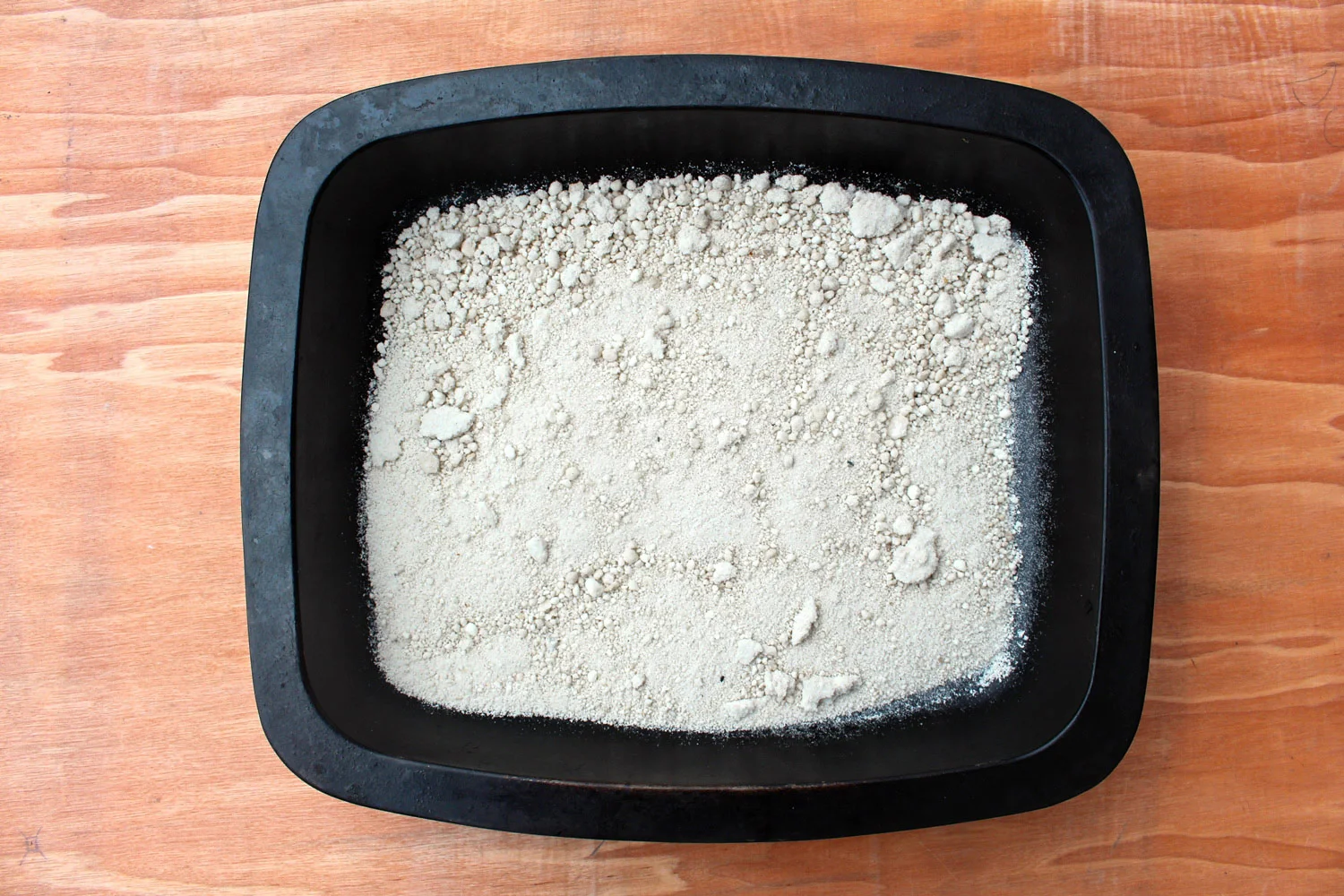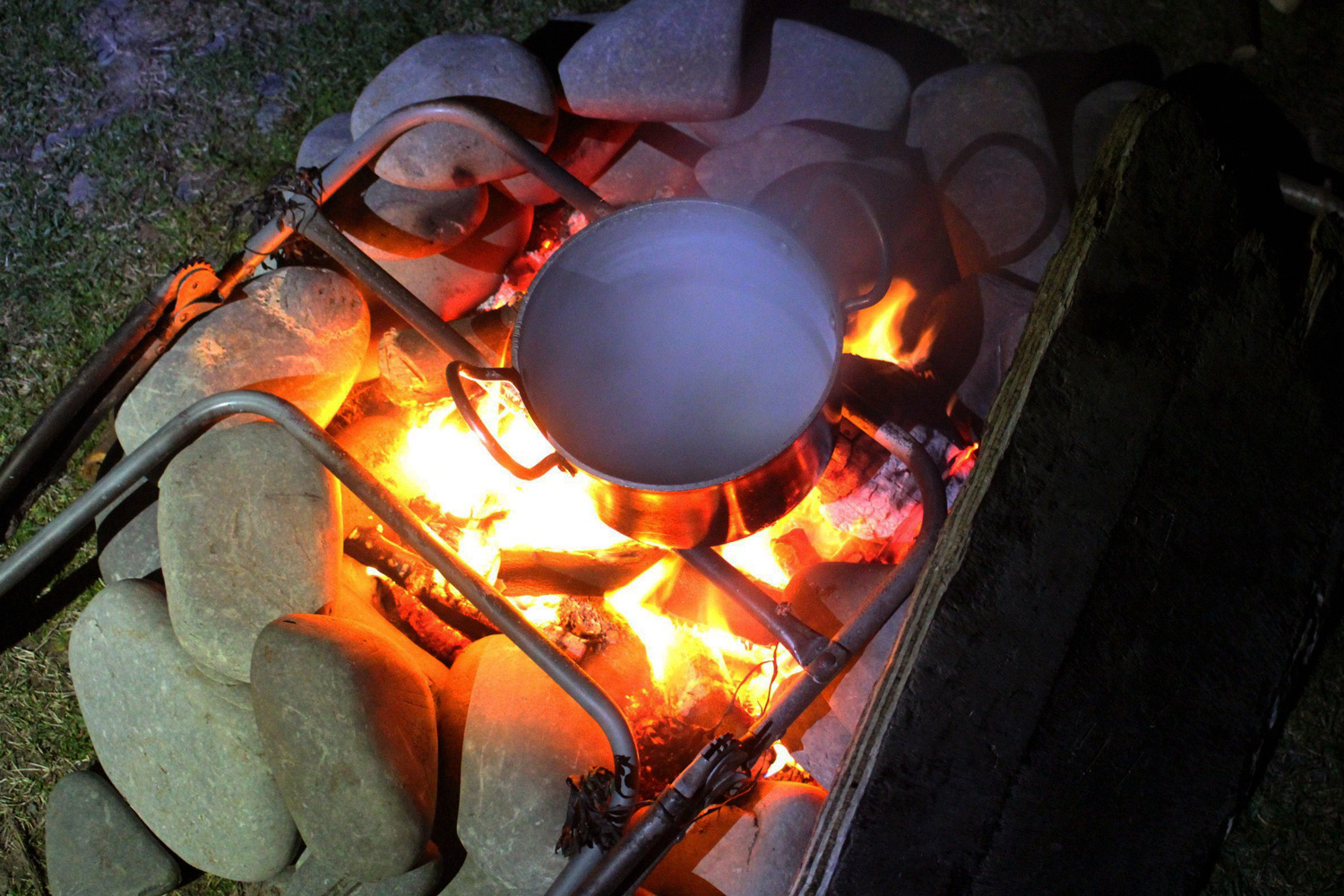SEA SALT HARVEST
RHOSILLI BAY. SWANSEA, WALES, 2015
Part of our continued working process is to examine some of the basic components we use in our daily lives, and to establish whether we can produce them ourselves. Many of our projects include an edible element, and the idea to make our own sea salt was born.
This project arose from a discussion comparing the salinity of the sea that surrounds Wales in the United Kingdom and that which laps a human-made beach in Copenhagen, Denmark. We were also curious as to whether these countries, when surrounded by the sea, produced their own sea salt.
Research was undertaken into various salt making methods, and a plan was made to create our own sea salt in Swansea, South Wales, via an open fire evaporation process.
Early in spring, a large amount of wood was collected, then on a lovely sunny day, transported by van, and ultimately wheelbarrow to a selected spot on Rhossili Bay Beach. A makeshift boiling station was built, a fire set, then seawater collected from beyond the breaking waves. The water was twice filtered to clear any sand and debris.
Several experimental attempts were made. After these, we filled a large pot with 3-4 litres of seawater and commenced a lengthy more controlled evaporation process. This took around 4 hours of constant burning and yielded a significant amount of sea salt. Beachgoers who stopped to inquire about the salt making were given a small package of salt to take home.
Another small scale salt harvest occurred later that spring in Borth, Ceredigion, Wales. The process, essentially the same but simplified, utilised a metal frame from a chair found on the beach to hold the pot of salt water above the fire.
Seawater, bricks, wood, cooking pot, metal grill, found metal chair frame












